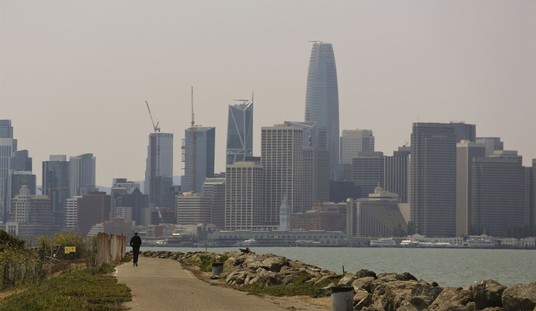Ireland may be the poster nation for the EU. Thanks to heavy investment from the multinational organization, Ireland rebuilt its infrastructure and launched its Celtic Tiger economic rebirth in the 1990s. The traditionally poor nation used low corporate taxes to attract business investment, and for the first time in centuries had more people moving to the island rather than fleeing it. When I traveled through Ireland in 2001, the EU signs showing their investment appeared almost everywhere.
Now the EU wants Irish approval on its Lisbon Treaty, but Ireland sees more of trap than opportunity in today’s EU. In two weeks, Brussels may see its second attempt at a new constitution hit the rocks on the Cliffs of Moher:
The future of the European Union now hangs on how the voters in this small country on the far western edge of Europe vote on June 12. And with less than two weeks to go to polling day, the referendum debate has been hijacked by issues that have little to do with the Lisbon Treaty. While many have accused the campaign against the treaty of being aggressive, populist and misleading, the reality is that it has also been pretty successful.
The latest opinion poll has the ‘Yes’ camp inching ahead, but only a bit. A poll published in Ireland’s Sunday Business Post showed that 41 percent were now planning to vote for the treaty, up 3 points from the previous poll. However, the ‘No’ side had seen a bigger increase, jumping 5 percent to 33 percent. With a full quarter of the electorate undecided, the spectre of a repeat of France and the Netherlands’ rejection of the European Constitution in 2005 is looming. ….
The Irish “Celtic Tiger” is losing its teeth as the global financial crisis begins to eat away at job security and leaves many people shouldering the burden of huge mortgages and worrying about their financial future. In addition Irish farmers are riled at EU plans to open up Europe markets to global trade, so much so that many farmers are threatening to reject Lisbon.
The EU strongarmed Ireland into accepting the Nice Treaty in 2001, which allowed for the expansion of the EU. Ireland rejected the treaty in the required referendum — the only EU nation that requires a popular vote for ratification — and the Ahern government had to force a second referendum, which passed. That left a bad taste in Irish mouths, and the Lisbon Treaty may suffer from it.
It’s not the only issue at hand in the referendum, either. Sinn Fein, which can usually be counted on to take a more socialist line, suddenly worries about risking the low-tax system Ireland offers foreign investors. The new constitution would require more central control over taxation and subsidies, and Ireland might see the American companies leave for greener pastures under a Brussels-run tax policy. Some on the “NO” side argue that the Lisbon Treaty might undermine Irish prerogative on abortion policy, forcing legalization in contravention of the Maastricht Treaty, which allowed Ireland to set its own laws on abortion. The “YES” side argues that the Irish should consider “the common good of Europe”.
That is what makes this process so fascinating. Do the Irish consider themselves more European than Irish? Did France and the Netherlands consider themselves less European, and so reject the 2005 constitutional changes that would have relieved EU nations of a significant part of their sovereignty? So far, the EU-as-government experiment has asked its member nations and their citizens to pretend to be both European and nationalist at the same time. That doesn’t seem tenable, not even in the short run. Either the EU is the sovereign and nationalities get reduced to ethnicities, or the EU will be nothing more than a trading organization.
We will know more on June 12. If the Irish reject Lisbon, the EU has to answer that question.








Join the conversation as a VIP Member